RBI Governor Shaktikanta Das on Friday said that inflation is on a declining trajectory, as it has fallen by 170 basis points from its January 2020 peak.
Retail inflation fell to four-month low of 5.91 per cent in March over the previous month, mainly due to easing food prices.
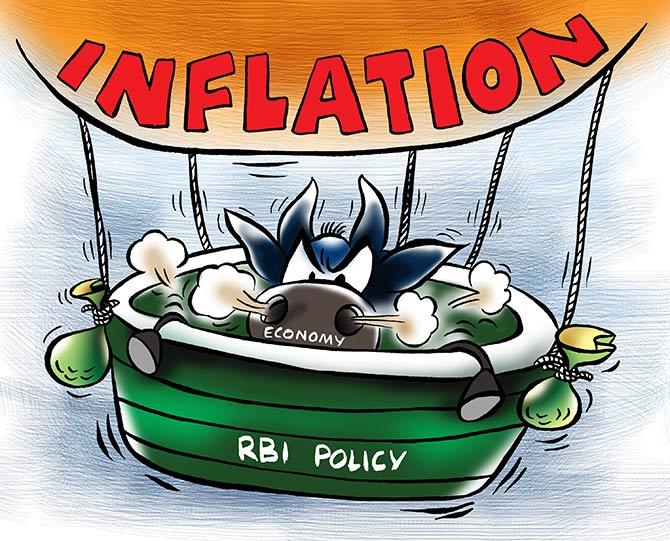
The Reserve Bank of India sees retail inflation falling below its targeted 4 per cent by the second half of the current fiscal year as the spread of coronavirus pandemic followed by continued lockdown in the country has posed serious challenges to the demand in the economy.
In an early morning video conference, RBI Governor Shaktikanta Das on Friday said that inflation is on a declining trajectory, as it has fallen by 170 basis points from its January 2020 peak.
"In the period ahead, inflation could recede even further, barring supply disruption shocks and may even settle well below the target of 4 per cent by the second half of 2020-21," Das said.
RBI, that gauges consumer price index (CPI) based retail inflation to take decisions on its bi-monthly monetary policy decisions, has set mid to long term inflation target at 4 per cent with a bias of 2 per cent on either side.
"Such an outlook would make policy space available to address the intensification of risks to growth and financial stability brought on by Covid-19.
“This space needs to be used effectively and in time," Governor Das said.
Retail inflation fell to four-month low of 5.91 per cent in March over the previous month, mainly due to easing food prices, government data showed earlier on Monday.
Citing the National Statistical Office (NSO) data released on April 13, that showed that CPI inflation for March fell to 5.91 per cent, Das said even as it was based on data available only till March 19, it reflected that there was softening of food inflation by around 160 basis points on account of the easing of prices of vegetables, eggs, meat, fish, pulses, oils and fats, fruits and sugar.
In other categories of the consumer price index (CPI), inflation pressures remained firm, Das added.
The RBI Governor said as per the daily data on 22 essential food items covered by the Department of Consumer Affairs (DCA), it is suggested that food prices have increased by 2.3 per cent in April so far (up to April 13, 2020) in a broad-based manner.
Though onion prices have continued to decline, public distribution system (PDS) kerosene prices have slumped by 24 per cent in the first fortnight of April, he added.
Domestic LPG prices also declined by 8 per cent.
"These early developments suggest that inflation is on a declining trajectory, having fallen by 170 basis points from its January 2020 peak," Das said.
In RBI's assessment of the current economic situation, Das said since March 27, 2020, when he had spoken on COVID-19 challenges for the first time, the macroeconomic and financial landscape had deteriorated, precipitously in some areas.
"...but light still shines through bravely in some others.
“On April 14, the IMF released its global growth projections, revealing that in 2020, the global economy is expected to plunge into the worst recession since the Great Depression, far worse than the Global Financial Crisis," he said.
On March 27, the RBI had announced liquidity injection equivalent to about 3.2 per cent of GDP to support the economy.
Today, the RBI announced a second round of support for players in the financial markets to keep the economy going.
Even as global projections are replete with sharper declines in output in various countries, Das said India is among the handful of countries that are projected to cling on tenuously to positive growth at 1.9 per cent, as per the International Monetary Fund (IMF).
Das added the growth projection for India is the highest among the G-20 economies.
The governor also ensured that the RBI will not shy away from announcing further measures as the need arises.
"The RBI will monitor the evolving situation continuously and use all its instruments to address the daunting challenges posed by the pandemic.
"The overarching objective is to keep the financial system and financial markets sound, liquid and smoothly functioning so that finance keeps flowing to all stakeholders, especially those that are disadvantaged and vulnerable," Das said.
Regulatory measures that have been announced so far, including those made today - are dovetailed into the objective of preserving financial stability, he added.
"Although social distancing separates us, we stand united and resolute. Eventually, we shall cure; and we shall endure," the governor said.

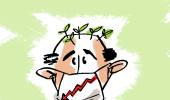

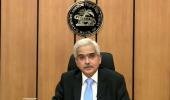
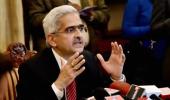



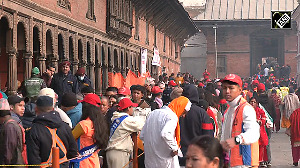

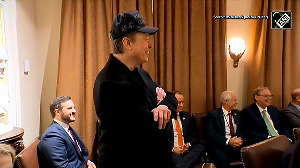
 © 2025
© 2025